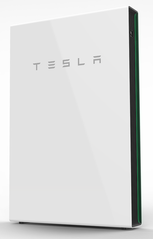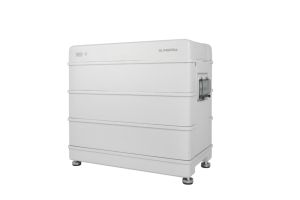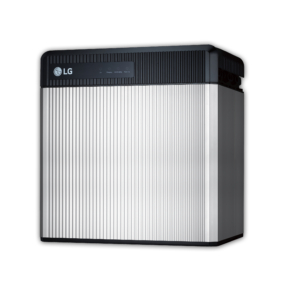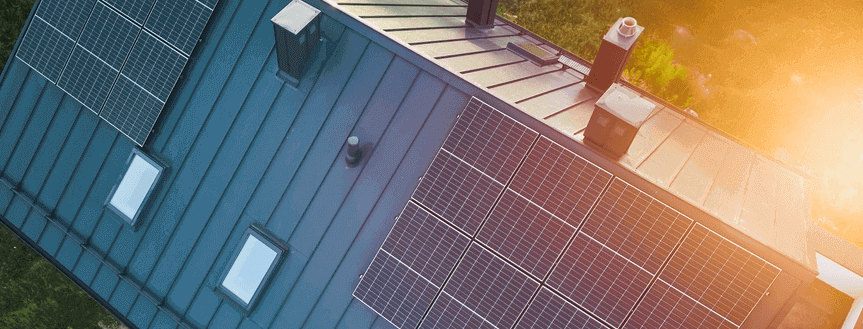Between 2021 and 2023 LG Energy Solution Australia recalled some ESS Home Batteries bearing RESU serial numbers due to the risk of overheating. The Australian Competition and Consumer Commission advised consumers to check whether their solar storage system contains a recalled battery and, if so, switch off the battery immediately. You can find more information on the recall and how to identify the affected batteries on the LG Energy Solution Australia site.
In this Canstar Blue guide, we look at the solar installation, feed-in tariff and rebates options from Origin Energy. We’ll also highlight any special solar deals for households.
Whether you’re a solar novice thinking about installing panels for the first time, or a seasoned pro shopping around for the best deal to help maximise your investment, it’s natural that you’ll consider Origin Energy as your potential solar retailer. As Australia’s biggest integrated energy company, Origin is well-placed to help you at any stage of your solar journey. But getting the best solar deal from Origin requires some commitment on your part, so you’ll need to think carefully before making any big, long-term decisions.
To help you decide if Origin is your best solar bet or not, Canstar Blue has produced this guide, looking at everything from installation to feed-in tariffs and solar batteries. We’ve done our best to answer any and all questions you might have about Origin Energy solar below.
On this page:
- Solar with Origin Energy
- Origin solar plans NSW
- Origin solar plans VIC
- Origin solar plans SEQ
- Origin solar plans SA
- Origin solar feed-in tariffs
- What solar systems does Origin have?
- What about solar batteries?
- Origin solar maintenance and warranties
- Does Origin offer premium feed-in tariffs
- Origin solar price and financing
- Should I get solar with Origin?
Advertisement
Solar with Origin Energy
Origin describes itself as your ‘one-stop’ solar system provider. It offers a range of services including the design, installation and maintenance of your solar system. Origin also has a range of electricity deals, including a few specialised solar products, to help customers get the most out of their panels. Most Origin electricity plans include a feed-in tariff, but these offers are specifically designed for solar customers and include the retailer’s highest rates for exporting energy to the grid.
Origin solar plans NSW
Here are the Origin Energy solar plans available on our database. These costs are based on the Ausgrid network in Sydney but prices will vary depending on your circumstances. Plans are listed in order of lowest price first. Annual price estimates assume general energy usage of 3900kWh/year for a residential customer on a single rate tariff. Price estimates exclude solar feed-in tariff credits. These are products from a referral partner†. Our database may not cover all deals in your area, and please check retailer websites for up to date information.
Origin solar plans VIC
Here are the Origin Energy solar plans available on our database. These costs are based on the Citipower network in Melbourne but prices will vary depending on your circumstances. Plans are listed in order of lowest price first. Annual price estimates assume general energy usage of 4000kWh/year for a residential customer on a single rate tariff. Price estimates exclude solar feed-in tariff credits. These are products from a referral partner†. Our database may not cover all deals in your area, and please check retailer websites for up to date information.
Origin solar plans SEQ
Here are the Origin Energy solar plans available on our database. These costs are based on the Energex network in Brisbane but prices will vary depending on your circumstances. Plans are listed in order of lowest price first. Annual price estimates assume general energy usage of 4600kWh/year for a residential customer on a single rate tariff. Price estimates exclude solar feed-in tariff credits. These are products from a referral partner†. Our database may not cover all deals in your area, and please check retailer websites for up to date information.
Origin solar plans SA
Here are the Origin Energy solar plans available on our database. These costs are based on SA Power network in Adelaide but prices will vary depending on your circumstances. Plans are listed in order of lowest price first. Annual price estimates assume general energy usage of 4000kWh/year for a residential customer on a single rate tariff. Price estimates exclude solar feed-in tariff credits. These are products from a referral partner†. Our database may not cover all deals in your area, and please check retailer websites for up to date information.
Origin solar feed-in tariffs
Here are the feed-in tariffs for customers on single rate tariffs from Origin Energy when choosing its solar-specific electricity plans:
Origin Go Solar Variable or Solar Boost
These plans are only eligible to customers with a net metered solar PV system.
| State | FiT ranges |
|---|---|
| Queensland | 6-8c/kWh for the first 8kWh, then 4c/kWh |
| Victoria* | 3.3-5c/kWh |
| New South Wales | 6-8c/kWh for the first 8kWh, then 5c/kWh |
| South Australia | 6-8c/kWh for the first 8kWh, then 4c/kWh |
| ACT | N/A |
Source: Energy Made Easy website, March 2025.
While this may seem an enticing offer, be sure to compare plans from other providers before making a decision.
What solar systems does Origin have?
Origin Energy has a range of solar power system packages on offer, including solar and battery and battery-only options. Packages include:
- Aurora: includes Goodwe inverter and Trina 440W solar panels
- Premium: includes Fronius inverter, Trina 440W solar panels and a Tesla Powerwall battery
- Battery: includes a Tesla Powerwall battery
The price of these systems varies and you will need to contact Origin for a quote.
Origin doesn’t have a “one-size-fits-all” approach to solar. Rather, it says that it works with its customers to understand their energy needs to calculate the best solar solution for their home.
What about solar batteries?
Adding a battery to your solar system means you can store any excess solar power generated by your panels to use later on, rather than drawing power from the grid at a cost. Storage systems can help you save even more on power and allow you to access your solar power at night, during blackouts, or during times when grid electricity is most expensive. Origin Energy sells three kinds of battery – Tesla’s Powerwall 2, the Sungrow SBR HV 9.6 and the LG Chem RESU 10.
- Tesla Powerwall 2: The Tesla Powerwall 2 is one of the most popular solar batteries on the market, with 13.5kWh of storage.

- Sungrow SBR HV: The Sungrow SBR HV is a light and compact, high-voltage battery with 9.6kWh of storage. Its also claimed to offer an easy installation process thanks to its plug-in-play connectivity system.

- LG Chem RESU10: The LG Chem RESU10 offers 8.8kWh of storage for households. According to the Origin website, it is a high quality and flexible battery storage solution.

Origin solar maintenance and warranties
All solar panels, inverters and storage batteries installed by qualified Origin Energy installers are backed up with a five-year warranty on workmanship. This means that if your solar stops working properly due to a fault on the part of the installers, the company will repair/re-do the installation at its own cost.
Most of the products sold by Origin are also covered by a manufacturer’s warranty, but be sure to check this yourself before purchasing.
- Fronius Inverter: 10-year manufacturer’s warranty on parts and 5-years on labour
- Goodwe inverter: 10-year manufacturer’s warranty on parts and 5 years on labour
- JA solar panels: 25-year material/workmanship warranty and 30-year power output warranty
- Trina solar panels: 15-year material warranty and 25-year power output warranty
- Tesla Powerwall: 10-year performance warranty
- Sungrow SBR HV: 10-year performance warranty
- LG Chem RESU 10: 10-year performance warranty
Keep in mind that, like most warranties, you must take all reasonable steps to maintain your system and alert Origin or the manufacture at the first sign of any fault. Be sure to read your warranty terms carefully before purchasing a solar product.
Does Origin offer premium feed-in tariffs?
Origin Energy offers a standard feed-in tariff of between 3.3c/kWh and 10c/kWh, depending on where you live. Origin’s standard FiT is available across most of its electricity products. As discussed, customers that sign up to Origin’s dedicated solar product can score an even larger FiT, upward of 10c/kWh.
Solar customers that have previously signed up to a Solar Bonus Scheme tariff should still receive the bonus rate if they switch to Origin.
Compare Origin feed-in tariffs
Here is a list of all Origin Energy feed-in tariffs for solar customers. As you can see, there is sometimes a big difference between the standard FITs and those offered with Origin’s solar-specific plans.
| State | Standard FiT | Go Solar Variable FiT | Solar Boost FiT |
|---|---|---|---|
| QLD | 4c/kWh | 6c/kWh for the first 8kWh, then 4c/kWh | 8c/kWh for the first 8kWh, then 4c/kWh |
| VIC | 3.3c/kWh | 4c/kWh | 5c/kWh |
| NSW | 5c/kWh | 6c/kWh for the first 8kWh, then 5c/kWh | 8c/kWh for the first 8kWh, then 5c/kWh |
| SA | 4c/kWh | 6c/kWh for the first 8kWh, then 4c/kWh | 8c/kWh for the first 8kWh, then 4c/kWh |
| ACT | 9c/kWh | N/A | N/A |
Source: Energy Made Easy website, March 2025.
To find the right deal for your circumstances, you’ll need to take a close look at your typical power usage versus how much solar energy you typically export. If you tend to use lots of electricity and don’t always export very much, you may be better off with one of the retailer’s standard plans. But you should discuss these options with Origin before diving in.
Origin solar price and financing
The price you pay for solar varies considerably depending on the selected range, size of the system and difficulty of the installation. Generally speaking however, you should expect to pay between $3,000 and $7,000 for a relatively standard rooftop solar system. Adding a battery on top will cost an additional $10,000 to $12,000.
Customers can purchase their solar system through Origin upfront. Alternatively, if you’re like most households and don’t have this kind of cash just lying around, Origin may offer a 24-month interest-free payment plan. This finance option breaks up the cost into 24 monthly interest-free instalments with $0 upfront deposit. The Origin website does not explain the applicable interest rate for failing to meet the conditions of this arrangement, so you should discuss these details with Origin before you agree to any financing offer.
Should I get solar with Origin?
The decision to go solar is almost a no-brainer with electricity prices these days, but is Origin the right installer and retailer for you? Origin says it has sold and installed over a 1.8 million panels and claims to be Australia’s second largest installer, so there’s little question about its experience and reputability. With that said, there are many options on the market with a variety of energy companies offering similarly comprehensive solar services.
Origin appears to be a ‘safe pair of hands’ and some households will no doubt take comfort from working with such a large company. But whether or not you could find better value elsewhere is another matter entirely.
The point is that solar is an investment, and like any other big spend, you should shop around and see what else is on offer before making a purchase decision. Follow the link below to check out how providers were rated by customers on their solar retail service in our latest satisfaction ratings report.
Original reporting by Dean Heckscher
Image source: Krzysztof Bubel/Shutterstock




Share this article